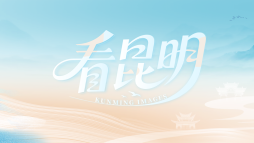Minister of New Zealand Ethnic Affairs calls for deep cooperations with Yunnan

Judith Collins, minister of New Zealand Ethnic Affairs, has made an investigation to the ethnic minority inhabited areas in Lijiang and Kunming in terms of economic and social development since June 26, aiming to deepen the mutual cooperations and exchanges with Yunnan in the work of ethnic affairs.
Reporter: What impressed you most when you are in Yunnan?
Ms Collins':I was greatly impressed by many places in my investigation to Yunnan this time, especially a village in Lijiang, which is called " Yuhu village". The tourism there is being well developed under the help of Yunnan Ethnic Affairs Commission, which leaves me a deep impression.
And on June 28,I have visited two local companies.One is called Yunnan Urban Construction Investment Corporations, which has agreements with one of New Zealand's coffee companies. Another one is Yunnan Hongli Technology Development Co. Ltd, which works with New Zealand's agricultural specialist Lewis Dag to engage in the production of Yunnan red pear.
Reporter:The ethnic affairs are highly valued by New Zealand. Is there anything in common in the ethnic works between Yunnan and New Zealand? How about the differences?
Ms Collins': In New Zealand, many of the ethnic groups are immigrants. For instance, Maori, are also immigrant, whose ancestors settled here about 1000 years ago.
We are making efforts to protect our ethnic diversity, so as to build a country that different ethnic groups can live together.
Reporter: So far, there are about 40000 Chinese in New Zealand, which can be considered as one of the ethnic groups also. How do they get accustomed to the life in New Zealand? How is Chinese culture inherited ?
Ms Collins': Of all the people in New Zealand, Chinese accounts for 4%. Most of them come from Chinese mainland, Hong Kong, Taiwan, including those from Malaysia, Singapore. Many organizations , such as the new Immigrant associations, have been built there to help Chinese to get used to the new life easier.
Moreover, many cultural festivals such as,Dragon Boat Festival, Mid-Autumn Festival, and Spring Festival, are also celebrated in New Zealand now.
In terms of language, many parents would sent their children to local Chinese language schools. As a result, children not only speak Chinese well, but also know more about their motherland.
Reporter: Many cultural exchanges have been held between Yunnan and New Zealan. Will more exchange activities be held in the future?
Ms Collins':I know that there are many cultural exchanges between Yunnan and the Maori community in New Zealand in recent years., including scholar visits and customs and art works of ethnic groups. Such kind of exchanges lay the foundation for the mutual cooperations in many other field, especially in trade and economy. Through this time's visit, i hope that more cooperations could be done between Yunnan and New Zealand.
Reporter: Do you have any suggestions for Yunnan in the ethnic affairs ? and how do you think of Yunnan's ethnic works?
Ms Collins': Well, in the field of ethnic affairs, I found that Yunnan did an excellent job in maintaining ethnic diversity. New Zealand also pays high attention to protect its own culture, as well as Yunnan.
(Editor:Hyesung,Minnie Mao)







